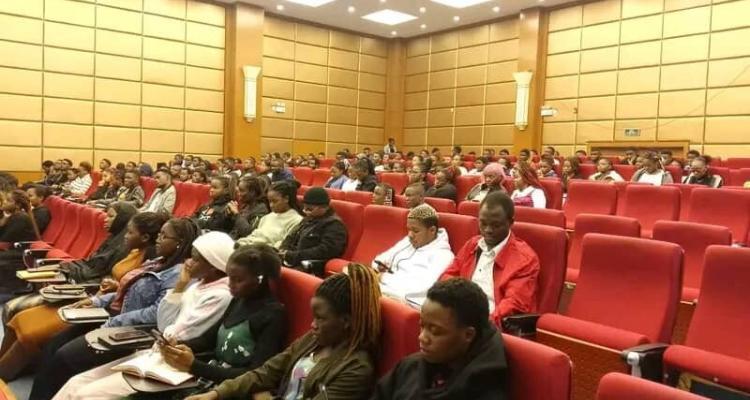
Students and lecturers for the Malawi University of Science and Technology (MUST) have developed various artificial intelligence (AI) systems, including the car tracking system and automated employee attendance for the Malawi Revenue Authority (MRA).
One of the MUST students and MRA interns, Precious Kamkwete, said once deployed, the attendance system, which uses a finger-print scanner, will replace the manual log books at every MRA point to save log-in time and help track employee efficiency and accountability, among others.
A team of final-year biomedical engineering students led by William Chonzi has also developed a deep learning system to diagnose measles, which prevents doctor-patient disease transmission by using pictures to give results in 0.25 seconds, unlike PCR, which takes about four hours.
The manufacturer engineering lecturer, Peter Mwambananji, has also come up with the Crop Recommendation System, which, within two minutes, determines the suitable soil for crops and weather factors in the areas to ensure high yields with few inputs.
Speaking during the university’s AI awareness event today, Dr. Michael Zimba, Dean of the Malawi Institute of Technology (MIT), said MUST, as the centre of AI and STEAM in the country, is geared to help the country embrace various AI technologies and stand out on the continent.
Artificial Intelligence (AI) is an evolving technology that tries to simulate human intelligence using machines. AI encompasses various subfields, including machine learning (ML) and deep learning, which allow systems to learn and adapt in novel ways from training data.
Fingerprint scanners can be used to secure physical access to locations as well as to devices. Fingerprint biometrics is a security feature that cannot be forgotten or misplaced like a password or hardware token.
Fingerprint analysis has been used to identify suspects and solve crimes for more than 100 years, and it remains an extremely valuable tool for law enforcement. One of the most important uses for fingerprints is to help investigators link one crime scene to another involving the same person.
Deep learning is a method in artificial intelligence (AI) that teaches computers to process data in a way that is inspired by the human brain. Deep learning models can recognize complex patterns in pictures, text, sounds, and other data to produce accurate insights and predictions.
Crop Recommendation Systems (CRS) are computer-based tools that help farmers make informed decisions about which crops to plant based on factors such as soil type, weather patterns, and historical crop yields.
Artificial Intelligence can also automate repetitive tasks, improving efficiency and productivity in various industries. Data Analysis and Insights: AI algorithms can analyze large data quickly, providing valuable insights for decision-making.














